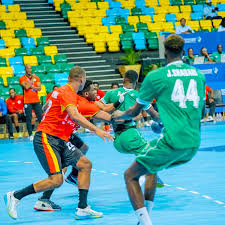
Rape: Robinho learns fate on nine-year sentence Wednesday
The Brazilian legal system will make a decision on Wednesday about the sentencing of former Manchester City and Real Madrid striker Robinho, who was found guilty of rape in Italy and given a nine-year sentence.
The Italian request for the 2017–2022 jail term that was ratified will be reviewed by Brazil’s Superior Court of Justice (STJ).
Robinho, who has maintained his innocence, stated in an interview with Brazilian network TV Record on Sunday, "I hope that here in Brazil I can have the voice that I didn't have there."
In 2013, a young Albanian woman was gang raped by six guys while she was celebrating her 23rd birthday at a nightclub in Milan. Robson de Souza, also referred to as "Robinho," was found guilty but is still at large.
At the time, AC Milan was the club team where former Brazil international Robinho was playing.
After Italy's top court affirmed his sentence, Italian authorities issued a request for his international arrest.
Yet Italy requested that Robinho be forced to spend his sentence in his native country because Brazil does not extradite its citizens.
Robinho called out the Italian legal system on Sunday, calling it "racist."
Robinho informed TV Record that it was mutually agreed upon.
"The encounter was something I never denied." Although my DNA was different, I might have denied it, but I'm not a liar.
“I became weary of seeing stories about racism after playing in Italy for four years. Whoever denounced me is the same person who does nothing to combat racism, which I reject.
When he awaits an appeal to Brazil's Supreme Court, the 40-year-old may continue to be free if the verdict is against him.
Robinho is expected to "serve" his sentence on Brazilian territory, according to Brazil's president Luiz Inacio Lula da Silva.
Authorities in Brazil are anticipated to grant Italy's request in this "unprecedented case," as reported by the media.
"Because the legislation enabling it is so new, approval is not common." That could be an unprecedented case in Brazil,” lawyer Leonardo Pantaleao told AFP.





